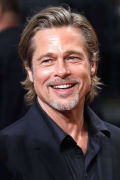Intro to "Fight Club"Launched in 1999 and directed by David Fincher, "Fight Club" is a movie that looks into themes of consumerism, masculinity, and identity. The screenplay by Jim Uhls adjusts Chuck Palahniuk's 1996 novel of the same name, and it includes Edward Norton as the unnamed protagonist, described as The Narrator, and Brad Pitt who plays the charming and anarchic Tyler Durden. The movie's gritty and provocative storytelling, integrated with its twist ending, has made it a cult classic.
Plot Overview"Fight Club" starts with The Narrator, an insomniac and disillusioned office employee, whose life is a monotonous cycle of work, consumerism, and superficiality. He participates in numerous support system for diseases he doesn't have, looking for relief for his existential crisis. On a flight for an organization journey, he comes across the mystical and confident soap salesman, Tyler Durden. After his home mysteriously explodes, The Narrator moves in with Tyler, and together they introduce 'Fight Club,' a secret society where guys gather to fight each other in bare-knuckle brawls as a form of catharsis.
As Fight Club develops, Tyler's philosophical ideology begins to shape the group into Project Mayhem, a bigger anti-corporate and anti-establishment movement. The Narrator ends up being uneasy as he loses control, and the actions of Project Mayhem escalate to more dangerous and devastating acts. The group's activities grow increasingly chaotic, culminating in a revolutionary plot targeting the monetary industry.
Characters and PerformancesThe Narrator, represented by Norton, is our window into the world of "Fight Club". His performance records the disillusionment of the modern man, driven to the edge of peace of mind by the vacuum of customer culture. Brad Pitt's representation of Tyler Durden embodies raw charisma and the allure of disobedience. Together, they form a vibrant and upsetting collaboration that is as thought-provoking as it is troubling.
The film also features Helena Bonham Carter as Marla Singer, a woman who shares the Narrator's sense of detachment from the world and becomes entangled in both his and Tyler's lives. Marla's existence heightens the stress in between the two main characters and adds a layer of intricacy to the narrative.
Themes and Interpretations"Fight Club" can be viewed as an exploration of modern-day male identity in crisis. It delves into the despair of modern life, where materialism and a lack of real connection leave individuals searching for meaning in destructive ways. The film's social commentary is a critique of a society consumed with possessions and shallow success, suggesting that this fascination leads to a form of spiritual and psychological personal bankruptcy.
The motion picture also wrestles with the principle of duality and the fight for self-liberation. Tyler's relatively anarchist philosophy is appealing however exposes a dark side as it comes down into nihilism. The Narrator's journey is as much about discovering function as it has to do with acknowledging and confronting the darker elements of his mind.
Cinematic Techniques and LegacyFincher's prominent directorial design, that includes a dark and gritty visual, serves to amplify the movie's tone. Using CGI, voice-over narration, and unconventional storytelling strategies, like breaking the fourth wall, makes "Fight Club" an unique cinematic experience. The non-linear plot, integrated with the infamous plot twist, obstacles audiences and welcomes several interpretations.
"Fight Club" has withstood as a cultural example, sparking conversations and disputes on its styles and meanings. The film's tagline, "The first rule of Fight Club is: you do not talk about Fight Club", has gone beyond the film itself, ending up being a part of pop culture. Although it generated blended responses on its release, time has solidified its status as a prominent and thought-provoking work. Its critique of consumer culture and the depiction of the crisis of masculinity remains appropriate, making "Fight Club" a prompt and enduring film that continues to resonate with audiences.
Top Cast











